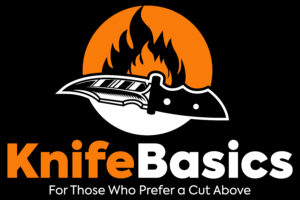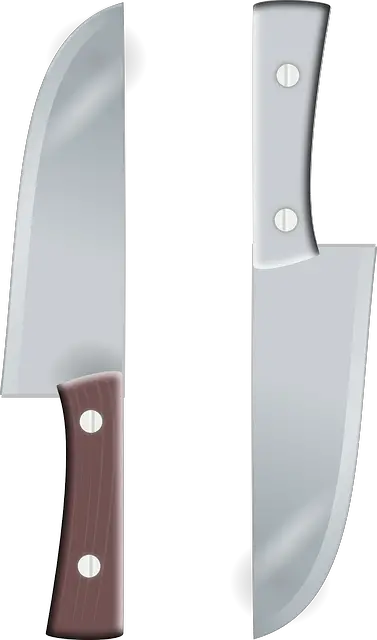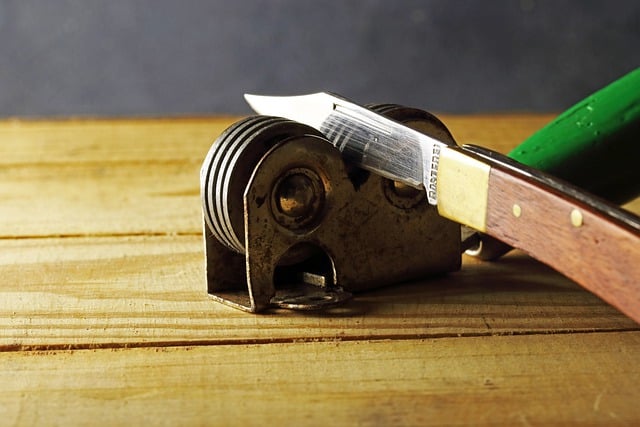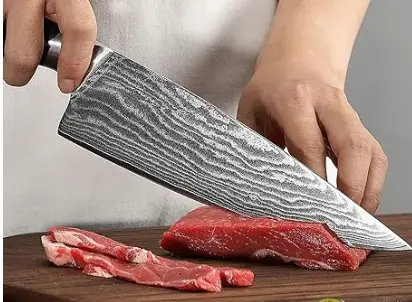Table of Contents
- The importance of steel quality in knives
- Understanding the science behind exceptional strength and durability
- Understanding the science behind exceptional strength and durability
- Types of super knife steel alloys
- Factors that affect the strength and durability of super knife steel
- Testing methods for evaluating super knife steel performance
- Comparing super knife steel to other types of steel
- Popular knife brands that use super knife steel
- Care and maintenance tips for knives made with super knife steel
- Conclusion: The future of super knife steel in the knife industry
When it comes to choosing the right knife, strength and durability are paramount. That’s where super knife steel steps in. In this article, we will delve into the science behind this exceptional material, exploring why it is favored by discerning chefs, survivalists, and outdoor enthusiasts alike.
Super knife steel is known for its remarkable strength and resilience, making it the go-to choice for those who demand top performance. But what sets it apart? Its superior composition and precise manufacturing process result in a blade that can withstand even the toughest tasks, all while maintaining its sharpness.
By incorporating the latest advancements in metallurgy, super knife steel achieves a fine balance between hardness and toughness. It boasts a high carbon content, providing incredible hardness for long-lasting sharpness, while also incorporating other elements like chromium and vanadium for improved corrosion resistance.
Join us as we unravel the secrets behind this exceptional material, and discover why super knife steel is the ultimate choice for those seeking uncompromising strength and durability in their blades.
The importance of steel quality in knives
To truly appreciate the exceptional strength and durability of super knife steel, it is essential to understand the science behind it. Super knife steel is typically made using a process called powder metallurgy. This process involves blending powdered metals to create an alloy with superior properties.
The powder metallurgy process starts by selecting the desired elements and melting them together. The resulting molten metal is then rapidly cooled, causing it to solidify into a fine powder. This powder is then pressed into the desired shape and subjected to intense heat and pressure to create a solid piece of super knife steel.
The powder metallurgy process offers several advantages over traditional steel-making techniques. Firstly, it allows for precise control over the composition of the steel, resulting in a more consistent and uniform product. This consistency translates into improved performance and reliability.
Secondly, the powder metallurgy process helps eliminate impurities and imperfections commonly found in conventional steels. By starting with a fine powder, the chances of impurities being trapped within the steel are significantly reduced. This results in a stronger and more durable blade that is less prone to chipping or breaking.
Additionally, the powder metallurgy process allows for the incorporation of elements that are not easily alloyed using traditional methods. This opens up a whole new world of possibilities in terms of steel composition and performance. By carefully selecting the right combination of elements, manufacturers can create super knife steel alloys with specific properties tailored to meet the demands of different applications.
Understanding the science behind exceptional strength and durability
Super knife steel is available in various alloys, each with its unique properties and characteristics. Here are some of the most popular super knife steel alloys on the market:
1. S30V: Developed by Crucible Industries, S30V is a high-performance stainless steel known for its exceptional edge retention and corrosion resistance. It contains a high carbon content, as well as vanadium and chromium for added toughness and corrosion resistance.
2. VG-10: VG-10 is a popular choice for Japanese-style knives. It is known for its excellent sharpness and edge retention. VG-10 contains a high carbon content, as well as vanadium, making it highly resistant to corrosion.
4. M390: M390 is a super knife steel known for its exceptional edge retention and corrosion resistance. It contains a high carbon content, as well as chromium, vanadium, and molybdenum for enhanced performance.
Each of these alloys offers its unique set of advantages, making them suitable for different applications and preferences. Whether you’re looking for a blade with superior edge retention, excellent corrosion resistance, or exceptional toughness, there is a super knife steel alloy that meets your needs.
Types of super knife steel alloys
While super knife steel is renowned for its exceptional strength and durability, there are several factors that can influence its performance. Understanding these factors can help you make an informed decision when choosing a knife made from super knife steel.
1. Heat Treatment: The heat treatment process plays a crucial role in determining the final properties of the steel. Proper heat treatment ensures that the steel achieves the desired hardness, toughness, and edge retention. The exact heat treatment process can vary depending on the specific alloy used, and it is essential to follow the manufacturer’s recommendations for optimal performance.
2. Blade Geometry: The geometry of the blade, including its thickness, grind, and edge angle, can significantly impact its performance. Different blade geometries excel in different cutting tasks. For example, a thin, flat grind is ideal for slicing tasks, while a thicker, convex grind is better suited for heavy-duty chopping.
3. Edge Maintenance: Regular maintenance and sharpening are crucial for maintaining the performance of a super knife steel blade. While super knife steel is known for its excellent edge retention, it is not immune to dulling. Using the appropriate sharpening techniques and tools will help ensure that your blade remains sharp and ready for action.
4. Intended Use: The intended use of the knife will also influence its overall strength and durability requirements. A knife designed for heavy-duty tasks like chopping wood or hunting will need to be more robust and durable compared to a knife used for delicate food preparation.
By considering these factors and selecting a knife that aligns with your specific requirements, you can maximize the strength and durability of this special blade type.
Factors that affect the strength and durability of super knife steel
To evaluate the performance of super knife steel, various testing methods are employed. These tests help determine the strength, toughness, and edge retention of the steel, providing valuable insights into its overall performance.
One common testing method is the Rockwell hardness test. This test measures the hardness of the steel by indenting it with a diamond cone or steel ball. The hardness value obtained indicates the steel’s ability to resist deformation and maintain its sharpness.
Another important test is the toughness test, which measures the steel’s ability to absorb energy without fracturing. Toughness is a crucial property for a knife blade as it determines its ability to withstand impact and heavy use.
Edge retention is another critical factor in evaluating super knife steel performance. This can be measured through cutting tests, where the steel is subjected to repetitive cutting tasks. The sharpness of the blade before and after the test is compared to determine how well the steel retains its edge.
These testing methods, along with others like corrosion resistance tests, help manufacturers and users assess the performance of super knife steel and make informed decisions when choosing a knife.
Testing methods for evaluating super knife steel performance
While super knife steel offers exceptional strength and durability, it is essential to understand how it compares to other types of steel commonly used in knife making. Here are some comparisons:
1. Stainless Steel: Stainless steel is a popular choice for kitchen knives due to its corrosion resistance. However, stainless steel blades typically do not offer the same level of hardness or edge retention as super knife steel. They may require more frequent sharpening to maintain their cutting performance.
2. High Carbon Steel: High carbon steel is known for its excellent hardness and edge retention. However, it is more prone to corrosion and requires regular maintenance to prevent rusting. Super knife steel, on the other hand, combines the best of both worlds, offering high carbon content for hardness and other elements for corrosion resistance.
3. Damascus Steel: Damascus steel is a type of steel known for its beautiful patterns and unique characteristics. It is created by folding and layering different types of steel together. While Damascus steel can be exceptionally strong and durable, the specific properties can vary depending on the craftsmanship and materials used.
4. Tool Steel: Tool steel is commonly used in the manufacturing of tools and industrial applications. While it can offer excellent hardness and toughness, it may lack the corrosion resistance and edge retention of super knife steel.
When comparing super knife steel to other types of steel, it is essential to consider your specific needs and preferences. What works best for one person may not necessarily be the ideal choice for another. Understanding the properties and characteristics of different types of steel will help you make an informed decision when selecting a knife.
Comparing super knife steel to other types of steel
Several knife brands have recognized the exceptional qualities of super knife steel and incorporate it into their products. Here are some popular knife brands known for their use of the same:
1. Benchmade: Benchmade is a renowned knife brand known for its high-quality craftsmanship and attention to detail. They use various super knife steel alloys such as S30V, S90V, and M390 in their premium knives.
2. Spyderco: Spyderco is another reputable brand that utilizes super knife steel in their knife blades. They offer a wide range of models made from popular alloys like VG-10 and S30V.
3. Zero Tolerance: Zero Tolerance is a brand that focuses on producing high-performance knives designed for heavy-duty tasks. They use super knife steel alloys like S35VN and M390 to ensure their knives can withstand demanding conditions.
4. Chris Reeve Knives: Chris Reeve Knives is known for its precision-engineered knives made from premium materials. They utilize super knife steel alloys like S35VN and S45VN in their blades, offering exceptional performance and durability.
These brands have built a reputation for delivering knives that excel in strength, durability, and cutting performance. By choosing a knife from one of these brands, you can be confident in the quality and performance of the super knife steel blade.
Popular knife brands that use super knife steel
To ensure the longevity and optimal performance of a knife made with super knife steel, proper care and maintenance are essential. Here are some tips to keep in mind:
1. Cleaning: After each use, clean the knife with warm water and mild soap, then dry it thoroughly to prevent moisture from causing corrosion.
2. Oil and Lubrication: Apply a thin layer of food-safe oil, such as mineral oil or knife oil, to the blade to prevent rust and maintain its corrosion resistance.
3. Storage: Store your knife in a dry environment and avoid exposure to extreme temperatures. Consider using a knife block, sheath, or magnetic strip to protect the blade and prevent accidental damage.
4. Sharpening: Regularly sharpen your knife using appropriate sharpening tools. Super knife steel is known for its edge retention, but it will eventually require sharpening to maintain its cutting performance.
5. Avoid Harsh Conditions: While super knife steel is highly durable, it is still important to avoid exposing the blade to harsh conditions like excessive force, high impact, or high heat.
By following these care and maintenance tips, you can ensure that your knife made with super knife steel remains in optimal condition for years to come.
Care and maintenance tips for knives made with super knife steel
Super knife steel has revolutionized the knife industry, offering unparalleled strength, durability, and cutting performance. Through the precise combination of advanced metallurgical techniques and superior composition, super knife steel has become the go-to choice for professionals and enthusiasts alike.
As the demand for high-performance knives continues to grow, the future of super knife steel looks promising. Manufacturers are continually pushing the boundaries of steel technology, developing new alloys and refining their manufacturing processes to deliver even better performance.
With advancements in steel technology, we can expect to see further improvements in areas such as edge retention, toughness, and corrosion resistance. These advancements will undoubtedly benefit chefs, survivalists, outdoor enthusiasts, and anyone who relies on their knife for precision cutting tasks.
So, the next time you’re in the market for a new knife, consider choosing one made with super knife steel. With its exceptional strength and durability, you can trust that it will surpass your expectations and become an invaluable tool in your arsenal. Invest in a knife that combines the art of craftsmanship with the science of super knife steel, and experience the difference for yourself.
Conclusion: The future of super knife steel in the knife industry
Super knife steel is a type of steel that is designed to provide superior strength and durability. It is a high-performance material that is created by using the latest metallurgical advancements and precise manufacturing techniques. The result is a blade that can withstand even the toughest tasks, all while maintaining its sharpness. Super knife steel is often used in high-end knives, such as those made by companies like Benchmade, Spyderco, and Hinderer.



